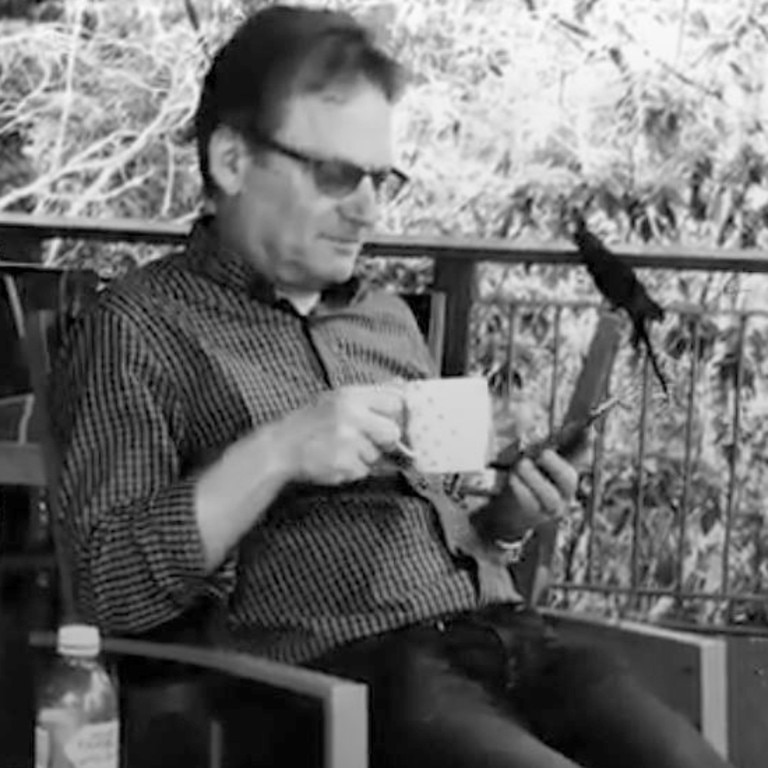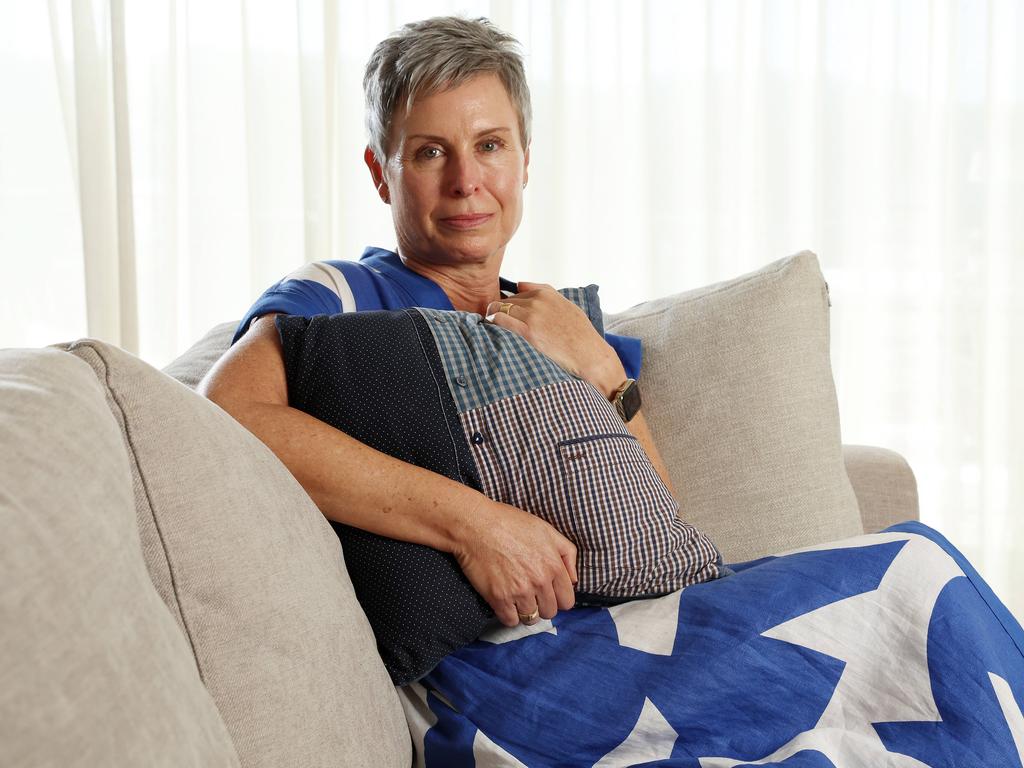Wife of doctor tells how her husband ended his life through voluntary assisted dying
A widow has recalled the way her husband took control of his death through voluntary assisted dying that allowed him to “peacefully” slip away in his own bed surrounded by family. WATCH THE VIDEO
Cancer
Don't miss out on the headlines from Cancer. Followed categories will be added to My News.
Pauline McGrath put her head on her husband’s chest as he drank the lethal medicine that would end his life. Safe and warm in his own bed, David Levitt quickly drifted into a deep sleep and for the next half-hour she listened intently until his heartbeat gradually fell silent.
“It was an incredibly quiet, peaceful time,” the Brisbane woman reveals as she tells The Sunday Mail how her great love took control of his death through voluntary assisted dying.
David was the director of General Paediatrics and Dermatology at the Queensland Children’s Hospital. He was diagnosed with a brain tumour in May 2022 and died in April 2023.
In the first six months after VAD services became available to eligible terminally ill Queenslanders in January 1 2023, 245 people died from the administration of a voluntary assisted dying substance — David was one of them.
As a leading Queensland doctor he was no stranger to death and dying.
So when he received his devastating diagnosis he instinctively knew that he would eventually die through voluntary assisted dying.
WATCH THE HEARTBREAKING VIDEO IN THE PLAYER ABOVE

David did not want to die in pain and it was important to him that he pass away peacefully in his own home surrounded by his loving family.
The VAD drug that would end his life was under lock and key in his inner city apartment — waiting for the day he was ready to let go.
“As a couple, we had made clear decisions that in the case of grave illness we never wanted life saving interventions just for the sake of living. We had talked about that and he had very clear views,” Pauline, who is also a health care worker,” said.
“When he was diagnosed with a glioblastoma multiforme at the age of 59 David knew what kind of death that would bring. On the day he told me about the diagnosis he said. ‘I have a brain tumour. And voluntary assisted dying starts on January 1’.”
The couple was aware that Queensland had passed the The Voluntary Assisted Dying Act 2021 in September 2021 and it would become available across the state on the first day of 2023.
David had surgery to resect his tumour in the June. And in the next few months he went through rounds of radiotherapy and chemotherapy.
“That was just to stabilise him for as long as possible and so that he lived long enough to make our oldest daughter’s wedding,” Pauline said.
The couple has two daughters Claire 26 and Hannah 23.
“The weekend of Claire’s wedding was the first time I really noticed David had become more unstable on his feet. He fell a couple of times over that weekend, which was really a turning point in his disease progress. And slowly but surely, things like balance became more challenging for him. Finding words became more challenging,” she said.
Pauline said that the decision to die using VAD was always David’s decision and she and their daughters were fully supportive of his wishes.
“Working in health. I’ve also seen a number of deaths. David had a good death because it was just us at home. We surrounded him with the love of all his family,” she said.

Family and friends spent precious time with David in the lead up to his passing.
In the full financial year from July 1 2023 to June 30 2024, 793 people died using VAD services — showing rising numbers.
But VAD advocates say the majority of Queenslanders still do not know that VAD could be open to them if they chose that path and are eligible.
Linda Swan, chief executive of Go Gentle Australia, said a recent study showed that two thirds of Queenslanders were unaware VAD was a legal option.
“There is still much work to be done to ensure people don’t suffer unnecessarily. This includes removing restrictions on essential communication in VAD care, in particular the ban on using telehealth which especially affects Queenslanders living in regional and remote areas,” she said.
Pauline has become a mighty advocate for VAD and wants the services to be easier to access for regional Queenslanders and using telehealth would bridge the gap.
Commonwealth VAD laws ban the use of telehealth in the delivery of any VAD appointments and services and that includes prescriptions.
“It’s much harder to get a sick and dying person to face-to-face meetings. Myself and many others are pushing for the federal government to amend the law,” she said.
Originally published as Wife of doctor tells how her husband ended his life through voluntary assisted dying




